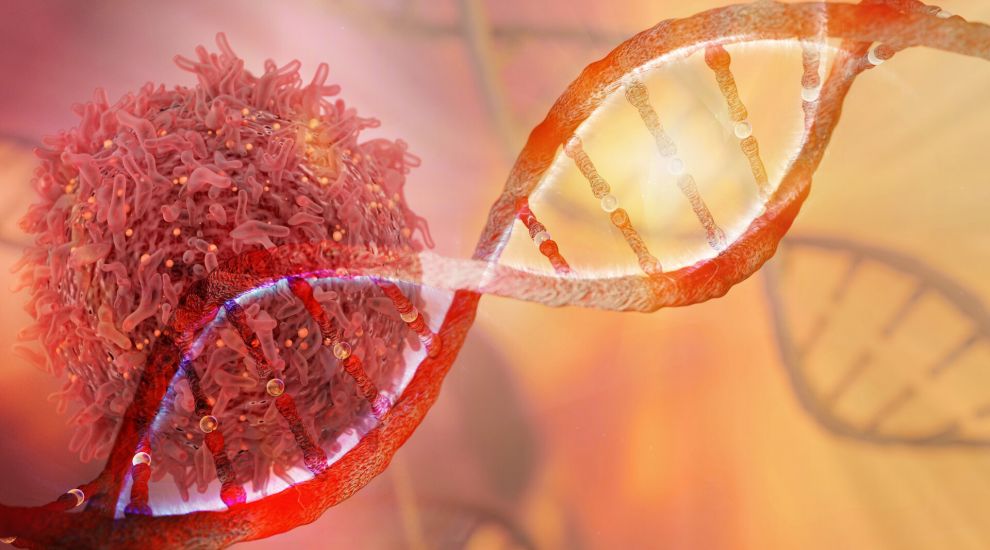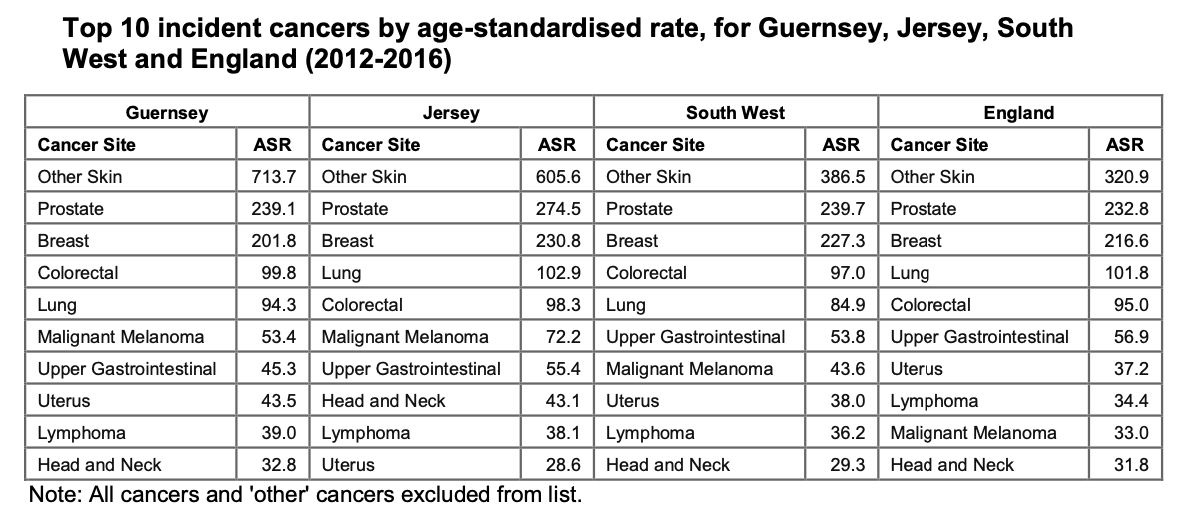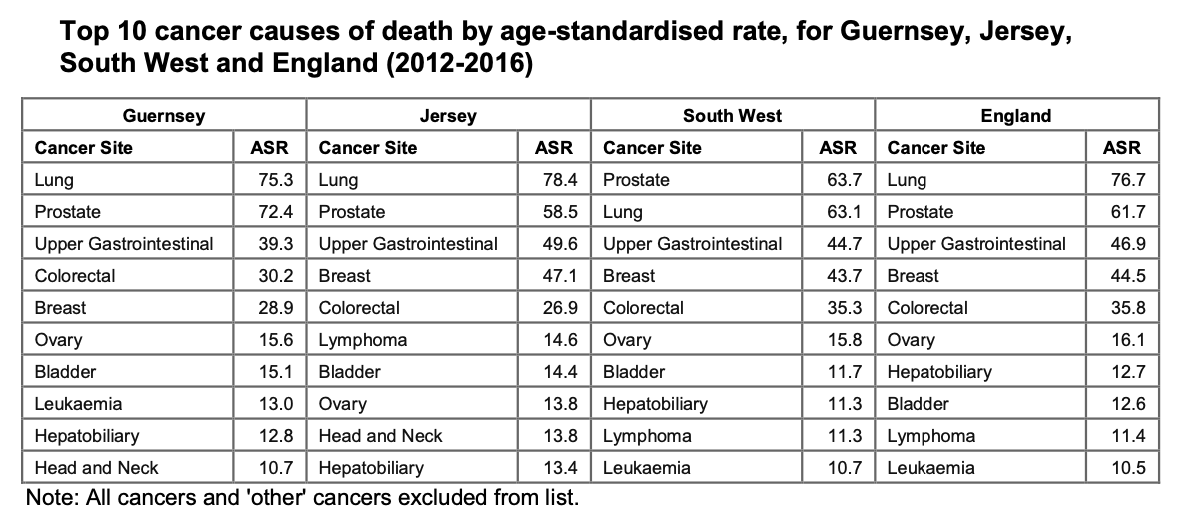


Skin cancer remains the most common cancer in Jersey, accounting for more than 40% of all cases, according to a new official study.
Adjusted to take account of age and gender, the rate for non-melanoma skin cancer was 605 people per 100,000 a year between 2012-2016.
This was less than Guernsey (717), but considerably higher than the south-west of England (386) and the whole of England (320).
The report, which was produced for Jersey and Guernsey by the National Cancer Registration and Analysis Service, provides basic statistics on cancers in Channel Islands residents for the five-year period. Although four years out-of-date due to a lack of resources in data collection, efforts are being made to make the reporting more current.
Although skin cancer is by far the most common type in the Channel Islands, most people recover. The three main causes of death are lung, prostate and upper gastrointestinal cancers in both Jersey and Guernsey.

Pictured: The top 10 incident cancers.
In Jersey, the overall cancer rate is 838 per 100,000 people, compared to 784 in England and 787 in the south-west. For Guernsey, the rate is 772 per 100,000. Jersey has a higher overall rate than all English regions.
There was an average of 1,013 malignant cancers registered each year in Jersey between 2012 and 2016. Non-melanoma skin cancers accounted for around 42% of the annual mean count of those cancers. After that, the three most commonly registered cancers were prostate, breast and lung cancer. Around 593 new cases are diagnosed every year.
There was an average of 242 deaths due to malignant cancers registered each year in the Island between 2012 and 2016.
Breaking down the figures into individual types of cancer, the rate for lung cancer in Jersey was higher than the south west but similar to England as a whole. The rate for male urogenital (excluding prostate) cancer was higher than England though did not differ significantly from the south west average.

Pictured: The top 10 cancer causes of death.
The rate for brain and central nervous system cancers, kidney and ureter cancers, leukaemia, and uterus cancer was lower than the South West and England. The rate for other gynaecological cancers (excluding ovary and uterus) was lower than the south west though did not differ significantly from the England average.
In Jersey, the mortality rate for head and neck cancer was higher than in the south west and England, while the rate for lung cancer was higher than in the south west but similar to the England average. The rate for colorectal cancer was lower than in the south west and England.
Responding to the findings, the Health Minister, Deputy Richard Renouf, said: “Cancer is a disease which will affect many Islanders and their loved ones and while it remains the leading cause of death in Jersey, many cancers can be prevented and treated through changes to lifestyle and behaviours.
“We are continuing to encourage positive changes in Islanders’ health and wellbeing and while some cancers may not be preventable, early identification through screening programmes remains the most effective way in reducing mortality. I would encourage Islanders to get themselves checked regularly.”
Comments
Comments on this story express the views of the commentator only, not Bailiwick Publishing. We are unable to guarantee the accuracy of any of those comments.